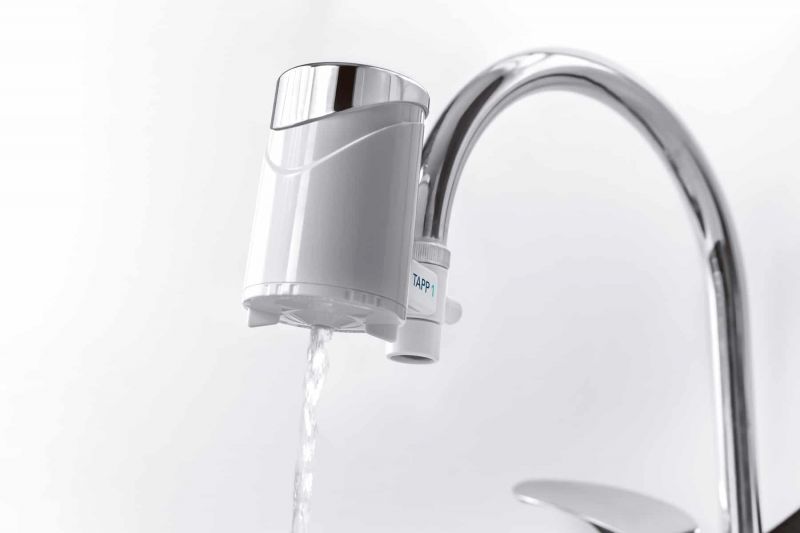Biodegradable, Bluetooth-connected Tap Water Filter Wants to Reduce Plastic Bottles
Published on by Water Network Research, Official research team of The Water Network in Technology
Established in 2015 by Alex Scwartz and Magnus Jern, TAPP Water aim is to promote the consumption of tap water and reduce the amount of plastic bottles by 1 billion by 2020.
To achieve our target we need to reach 2 million customers by 2020,” Jern explains. Additionally, it aims to “provide fresh clean drinking water to people that lack access today with other innovations in terms of products and filtering technology”.

Source: Tapp Water
After consulting scientists, institutes and tap water companies, TAPP Water concluded that there is in fact no scientific evidence that bottled water is healthier. What is even clearer is the environmental impact of all this plastic.
For this reason, it developed the TAPP 1 water filtration system, which is “affordable to use, costing as little as 5 dollars per month,” Jern specifies, acting as a solution to improve the taste and quality of water for those who don’t trust the tap.
Following its success, the TAPP 2 prototype was released in 2017 and an online crowdfunding campaign to support its commercialisation was launched on Indiegogo, where it has already surpassed its goal of raising 30,000 dollars. TAPP 2 isn’t only more efficient at filtering water than its predecessor, it also uses “biodegradable cartridges with zero plastic waste,” Jern points out.
How TAPP works
“The cartridges are made of starch based PLA plastic which breaks down in about three months in a compost environment and longer otherwise,” Jern explains. “The carbon block is made of organic coconut shells and compressed”. He specifies that the cartridges “should be discarded with compostable material but can also be disposed with other organics”. He goes further to say that “the advantage is that even if it ends up on a landfill or the ocean it will break down into organic material within 12 months and not cause any damage to animals or nature”.
Not only can such filters provide “better taste and odour” by “removing chlorine, chloride, sediment and some heavy metals that typically cause bad taste and odour,” TAPP equipment also collects useful data on water consumption. In fact, the inclusion of a Bluetooth sensor allows for “smart connectivity helping consumers keep track of the filter, cost savings, plastic and CO2 footprint reduction” by consulting the MyTAPP app.
Devices like these are a good step in the right direction. They can help reduce the impact of our plastic consumption-dependant lifestyles by encouraging the use of more sustainable alternatives for everyday needs such as drinking water, and can help directly decrease the amount of plastic we produce.
Read full article: Life Gate
Find out more: TAPP Water
Media
Taxonomy
- Drinking Water Security
- Drinking Water Treatment
- Filtration
- Filters
- Filtration
- Drinking Water Managment
- Drinking Water
- Biodegradable Products
- plastic pollution
- microplastics